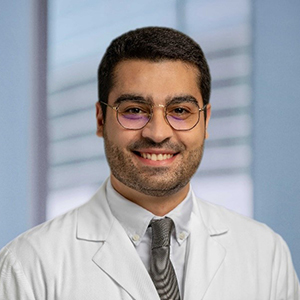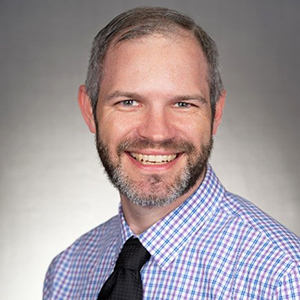Texas ACC Chapter’s FIT Success as Big as the Lone Star State: Part II

Joe Aoun, MD
Welcome back to our series on ACC chapter engagement for FITs! The intent of this series is to encourage FITs to actively engage in their state's ACC chapter. Interviews with select state chapters are conducted to glean their experiences and share with readers. In this article, I continue my interview with the Texas ACC chapter's FIT catalysts, Joe Aoun, MD, and Travis, Haneke, MD, about their chapter's efforts. (Read part one here.)
What are the challenges facing your FIT team? How have you overcome them?
Texas is a very large state, and there is significant distance between institutions. This makes it difficult for FITs to meet up and work closely together. On the other hand, this is beneficial and can lead to better education and experience sharing. This is especially true given the many educational institutions that are very involved. Unfortunately, due to distance, there are some institutions that are not as involved. One of our responsibilities is to reach out to these individual programs with the goal of increasing involvement.
COVID has limited our efforts to have live meetings and travel to share experience and expertise with other members. Having virtual meetings and educational conference have been helpful and we have been using that more often.
How does your ACC FIT chapter connect with ACC and sister FIT chapters across the world?

Travis Haneke, MD
Texas works very closely with the Brazilian Chapter and hosts combined meetings. COVID has prevented in-person meetings so far, but there are tremendous opportunities to elevate FITs into leadership levels from both chapters in the future.
Is there a particular focus of your chapter that you would like to mention?
We have a very active Women in Cardiology Section, which strives to elevate FIT and Early Career women. The WIC chapter hosts a section meeting with a speaker at the annual state meeting and has smaller group meetings at members' homes and local establishments. Several of the fellows have written about active WIC on the Texas ACC blog and appreciate career advice from senior women physicians.
This past year, we also participated in the Adult Congenital and Pediatric Cardiology Virtual Career Day along with multiple other chapters. The goal of the event is to expose medical students at historically black colleges and universities, as well as other medical schools with diverse student bodies, who are considering a career in cardiology.
What do you envision as the next steps and future goals for your FIT team?
We are planning to expand FIT involvement in sections (WIC, EP, CHF, etc.) in the state chapter by creating leadership positions so that each section will include a team of two cardiologists and an FIT.
Are there exceptional members who go out of their way to help chapter activities and FITs that you would like to highlight?
There are many members who have helped over the past year. First, we want to thank Shari Noonan, who is the chapter executive for helping us accomplish several of our goals. All members of the executive council have been supportive to the needs of active members, as well as Early Career and FIT members. Several FITs have written short articles for the newsletter blog, including Priya Rao Kothapalli, MD, and Yogamaya Mantha, MD. There are undoubtedly many other individuals who have also contributed greatly that we appreciate and are forgetting to highlight.
Thank you, Drs. Joe Aoun and Travis Haneke, for this highly informative discussion about your chapter's efforts.
Be the catalyst for change in your state chapter! The belief in what we do has a meaningful and profound impact on colleagues, the practice of cardiology, and the patients.
This article was authored by Megan Pelter, MD, an FIT at Scripps Clinic and Southern California ACC FIT chair. Twitter: @MeganPelter
This content was developed independently from the content developed for ACC.org. This content was not reviewed by the American College of Cardiology (ACC) for medical accuracy and the content is provided on an "as is" basis. Inclusion on ACC.org does not constitute a guarantee or endorsement by the ACC and ACC makes no warranty that the content is accurate, complete or error-free. The content is not a substitute for personalized medical advice and is not intended to be used as the sole basis for making individualized medical or health-related decisions. Statements or opinions expressed in this content reflect the views of the authors and do not reflect the official policy of ACC.

